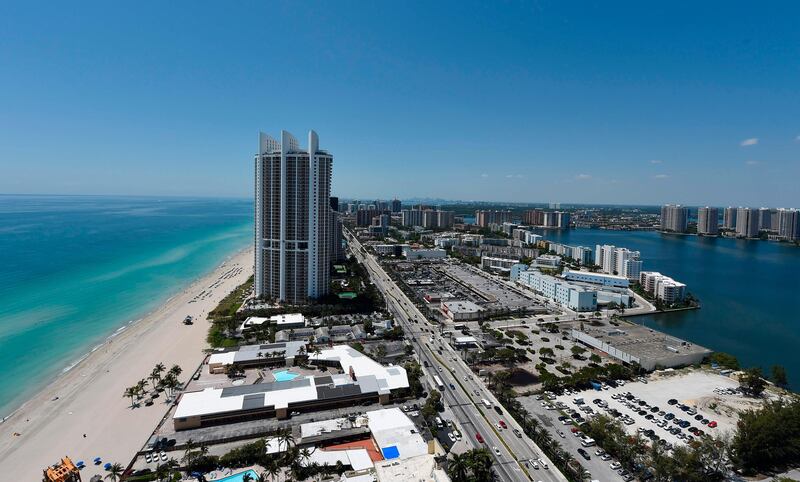Kaisha Toledo was studying for a doctorate in psychology in Puerto Rico, but after four years in Florida, she has still not found a permanent job in her field.
Ricardo Negron passed the bar on the island, but still cannot work as a lawyer in Florida. Carlos Martinez got his nursing license in Puerto Rico, but still serves up lattes as a Starbucks manager in Orlando.
Residents of the US territory have been US citizens for a century now and should have a built-in advantage as Americans when they move to the mainland.
But as the island's best and brightest join an exodus of about half a million Puerto Ricans coming Stateside to escape the territory's 10-year economic recession, they are hitting the same barriers most migrants face - language difficulties, costly certifications, confusing requirements and culture clashes.
"We don't know the system yet that well, so we're on a learning curve," Ms Toledo says. "We just find that jobs are very specific and they say you need to have two or three years of experience, but it's like, 'OK, but if you don't open the door for me, how will I be able to get that experience?'"
Puerto Rico's Instituto de Estadisticas says managers and professional workers made up the largest category of people moving from the island in 2015. Since then, the island's 3.4 million people have endured multimillion-dollar debt defaults, soaring foreclosures, a crumbling pension system, state of emergency at government agencies, deep cuts in education and an unemployment rate of 12 per cent, which is about triple the mainland rate.
"Everybody is leaving the island, from the neurosurgeon to the janitor," says Vicente Feliciano, an economist in Puerto Rico. "Young people are leaving and, thus, you have fewer taxpayers to support an increasingly elderly population."
New York was their top destination during the last major migration wave in the 1940s and 1950s but now central Florida is where they land, with more than 1 million Puerto Ricans living in the state.
"There's the weather and you will find Puerto Ricans, you will find the food, everywhere. So it's the next best thing to being home without having the issues," says Mr Negron.
Before leaving the island in 2015, he had lined up a legal assistant job at an Orlando law firm. But after arriving, his position was cut. Although he does not work as a lawyer, Mr Negron has found job happiness running a nonprofit for the Hispanic community in central Florida.
"I would have to shut myself in to study and I'm like, 'How am I going to live? I'm not going to get more student loans to study,'" Mr Negron says.
Mr Martinez has worked at a theme park, a hotel and a store since he left the island three years ago, but he has still not found a nursing job because he has not found the time or money needed for the prep class needed to study for his licence in Florida."At the moment, I can't do it," he says. "I got to make money."
Many Puerto Ricans move from the island without proper preparation, says Sami Haiman-Marrero, who runs a marketing and business-development firm in Orlando. With her friend, Jackie Mendez, she now offers orientation sessions to new arrivals on how to adapt to life and workplace norms in central Florida.
"You can't kiss your co-workers on the cheek ... Don't start talking about personal things ... You are supposed to be there at five minutes to the hour and be ready to work ... You need to have command of English," Ms Marrero says.
Janice Dones, who moved from Puerto Rico a year ago and attended a recent orientation, says, "It sometimes doesn't feel like we are part of the country."
Her feelings reflect a common refrain among islanders. The state governor Ricardo Rossello now hopes to persuade Congress to make the US territory the 51st state, which is unlikely under Republican control, since Puerto Ricans tend to favour Democrats.
Meanwhile, people like Ms Toledo just want a chance to work as professionals again.
"Everybody is trying to make a better life," she says. "I hope people will look at people like me, who have studied, and give them an opportunity."
Associated Press





